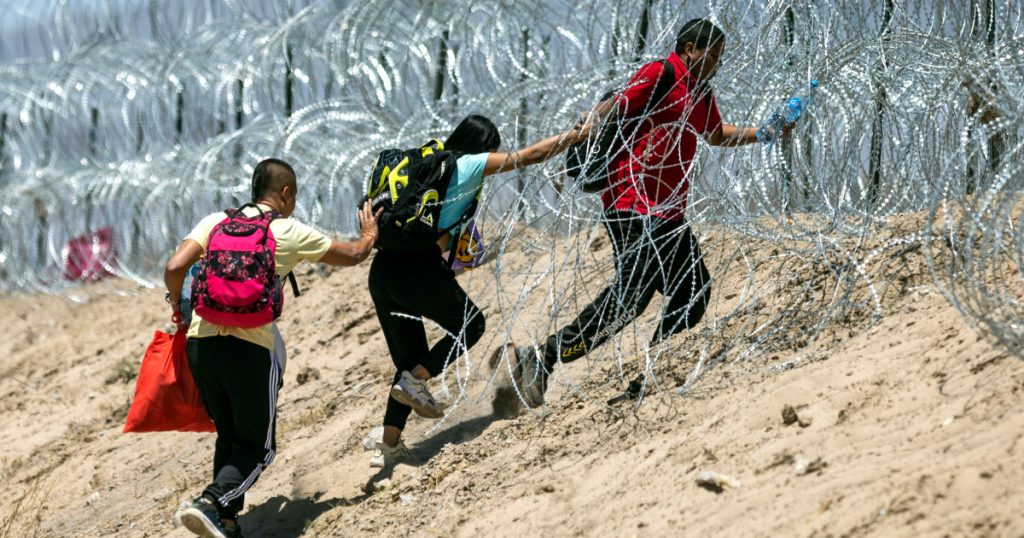A grand jury in Texas has indicted over 140 migrants on misdemeanor rioting charges following an alleged mass attempt to breach the U.S.-Mexico border in El Paso. This incident occurred on April 12 and involved individuals cutting through a razor wire barrier. No injuries were reported, but mass arrests followed a similar episode in March. On Monday, a judge dismissed the charges citing insufficient probable cause, but the grand jury decided there was enough evidence to proceed. El Paso County District Attorney Bill Hicks defended the decision, while Public Defender Kelli Childress-Diaz expressed little surprise.
The arrests have highlighted the increasing efforts by Texas to secure the border, with Governor Greg Abbott implementing aggressive measures to curb illegal crossings. In response to the March arrests, Abbott deployed 700 additional National Guard members to El Paso. Hicks, appointed by Abbott in 2022, noted that it is rare for a grand jury to indict misdemeanor cases but believed it was fair in this situation. He mentioned that over 350 people had been arrested on rioting charges since March. If convicted, the defendants could face up to 180 days in county jail and a fine of $2,000.
The actions taken by authorities have been met with criticism from the public defender representing the defendants, who argued that the charges were an attempt to grab headlines. Childress-Diaz suggested that the grand jury may have already made its decision before the hearing began. Despite the potential consequences at the county level, those in jail still face federal charges, and ICE agents could pick them up for processing on illegal entry offenses. The situation has raised concerns about the treatment of migrants and the use of law enforcement to address border security issues.
The border situation in Texas has been a focal point of political debates and policy decisions, with conflicting views on how best to manage the flow of migrants and ensure national security. Abbott’s measures have been seen as part of a broader strategy to address illegal crossings and protect state interests. Critics, however, have raised questions about the fairness and legality of the arrests and whether they align with constitutional rights. The indictments and subsequent legal proceedings will likely continue to generate debate and scrutiny from various stakeholders.
As the legal process unfolds, the defendants will have the opportunity to defend themselves and seek representation to challenge the charges brought against them. The outcome of these cases could have broader implications for how similar incidents are handled in the future and whether state authorities will continue to pursue aggressive tactics to address border security challenges. The plight of migrants and the impact of law enforcement actions on their lives will remain a topic of discussion and controversy as the situation unfolds in Texas and other border regions.


